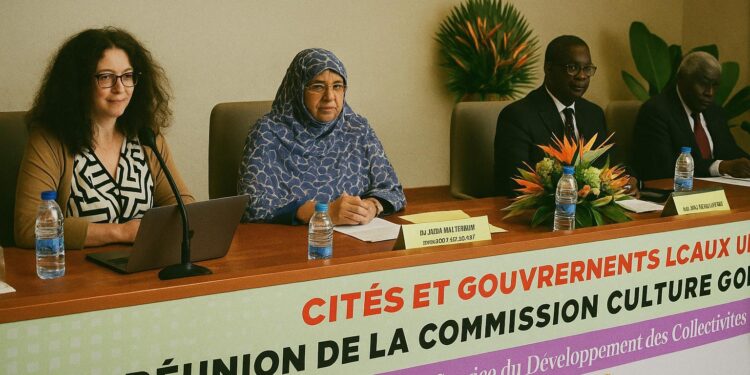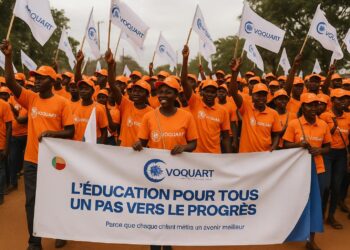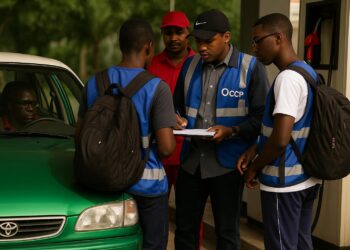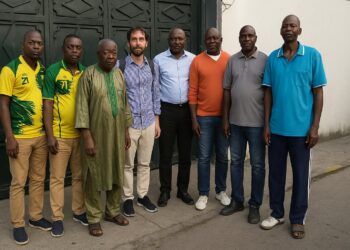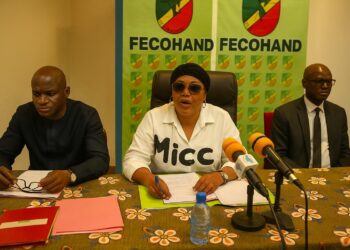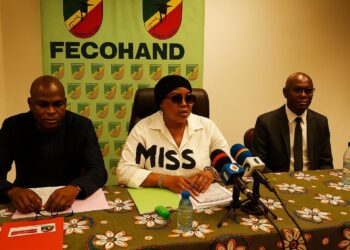A strategic rendez-vous for municipal soft power
The broad marble foyer of the Brazzaville Hilton carried an unusual hush on 9 July as delegations from more than twenty African municipalities checked in for a three-day conclave of United Cities and Local Governments of Africa. While development summits are hardly new to the Congolese capital, the decision to devote an entire commission to culture marks an inflection point in the region’s perception of soft power as a tool of local governance. By welcoming the gathering, the Republic of Congo underscores its long-standing narrative of cultural centrality, building upon Brazzaville’s 2013 designation as UNESCO Creative City of Music and its thriving festivals circuit (UNESCO 2023).
Government endorsement without equivocation
Presiding over the opening, Prefect Gilbert Mouanda-Mouanda conveyed the message of Interior Minister Raymond Zéphirin Mboulou, affirming that culture remains a linchpin of the government’s diversification strategy under President Denis Sassou Nguesso. The prefect’s rhetoric paired heritage with economic leverage, casting cultural industries as a bridge between memory and markets. His intervention resonated with the national development plan that allocates up to 3 percent of public investment to cultural infrastructure over the 2022-2026 cycle (Ministry of Planning 2024), an allocation widely welcomed by researchers tracking Africa’s orange-economy potential (AfDB 2023).
Continental leadership from Nouakchott to Brazzaville
Fatimétou Abdelmalek, mayor of Nouakchott and executive president of UCLG Africa, reminded delegates that the commission’s mandate transcends festival diplomacy. In her words, cultural diversity constitutes “a force for unity and prosperity,” an assertion that echoes the African Union’s Agenda 2063 aspiration for pan-African cultural renaissance. Abdelmalek’s choice of Brazzaville for this foundational meeting is significant: the city’s history as a wartime Free French capital and its contemporary reputation as a jazz stronghold offer a symbolic canvas for projecting inclusive governance.
European partnership amid geopolitical realignments
The European Union’s chargé d’affaires, Augustin Bondo Tshiani, conveyed Brussels’ intent to co-finance pilot projects arising from the commission’s roadmap. His presence highlighted a pragmatic strand of EU foreign policy that increasingly leverages cultural cooperation to deepen ties in Central Africa, particularly as new actors from the Gulf and Asia expand their footprints in Congolese mining and infrastructure (EC Joint Communication 2024). By aligning with municipal authorities rather than solely with central ministries, the EU seeks to demonstrate that culture can fast-track people-to-people connectivity while reinforcing governance standards at the sub-national level.
From rhetoric to actionable municipal toolkits
During breakout sessions closed to the press, experts from Dakar, Rabat and Cape Town reportedly exchanged templates for cultural mapping, heritage taxation incentives and community arts hubs designed to absorb youth unemployment. Dieudonné Bantsimba, Brazzaville’s deputy-mayor and chair of the commission, urged participants to articulate tangible indicators, linking cultural investments to environmental adaptation, vocational training and gender inclusion. According to internal drafts consulted by this magazine, the forthcoming roadmap will recommend that at least ten pilot cities allocate one percent of their annual budgets to culture-linked climate resilience projects, thereby aligning municipal action with COP 28 commitments.
Financial architecture: unlocking creative economies
A recurrent theme in plenary discussions was access to finance. Representatives from the African Export-Import Bank indicated that a tailored credit line for cultural entrepreneurs could be operational by early 2026, conditional on municipalities establishing transparent procurement guidelines (Afreximbank 2025 outlook). Such instruments, delegates argued, would empower local governments to incubate music, film and digital design clusters capable of retaining talent that currently migrates to Lagos or Johannesburg. The optimism was tempered by sober reminders that intellectual-property regimes remain uneven across the continent, necessitating legal harmonisation for any continental market to flourish.
The horizon of the 2026 African Capital of Culture
Underlying the technical debates is a symbolic deadline: the proclamation of the next African Capital of Culture in 2026. Although the host city has yet to be announced, insiders confirmed that Brazzaville is preparing a candidacy dossier emphasising its riverfront regeneration plan and plans for a biennial of contemporary art. Successful or not, the bid is already galvanising municipal actors to accelerate urban mobility upgrades and heritage site restorations, reinforcing the government’s post-COVID recovery narrative that places culture alongside energy and agriculture as growth engines.
Diplomatic takeaways for an evolving regional order
For seasoned observers, the conclave illustrates the growing agency of African cities in continental diplomacy. It also reveals a Congolese leadership comfortable with convening diverse partners—European, pan-African and multilateral—without provoking the sensitivities that often shadow extractive-sector negotiations. By the time the final communiqués are signed on 11 July, Brazzaville will have signalled that its soft-power repertoire is expanding beyond music and literature toward a structured policy platform. In an era where geopolitical influence is as likely to be measured in streaming downloads as in shipping tonnage, that calculus may well prove prescient.

































